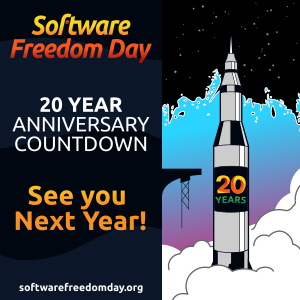 I posted this over on the excellent Information Wants To Be Free blog and would like to expand it a bit here.
I posted this over on the excellent Information Wants To Be Free blog and would like to expand it a bit here."Open Source software may not be for everyone, but the mere presence of OSS products in the library market highlights the premium pricing of the proprietary ILSs. If the vendors can’t handle the re-engineering costs now, just wait a few years until every upgrade bid is compared with OSS alternatives– it could really act as a brake on prices. Vendors could find themselves in a real bind."
"In fact, it seems to me that a valid strategy for an ILS vendor would be to pull a Novell. Rather than try to keep Netware competitive, Novell chose to buy a Linux distribution and migrate their customer base to OSS, where they can benefit from the efforts of the whole community and put their money to use in adding value where their customers can see it. They sell support as well as “official” versions of the software. Would your library buy an Open Source ILS if it was supported by Innovative or SirsiDynix?"
An alternative would be to open source a proprietary ILS and try to build a support community around it.
I think the greater software world has shown that these approaches can work, especially when a company does not have the resources to keep a proprietary product competitive. I think all the major ILS vendors are struggling with the realization that they cannot do what their customers are demanding at prices the customers can afford, which might be why so many are selling out to new owners while their customer bases are still intact.
I think moving to Open Source (one way or another) would provide a viable way for a vendor to meet customer demands while staying in business.



























